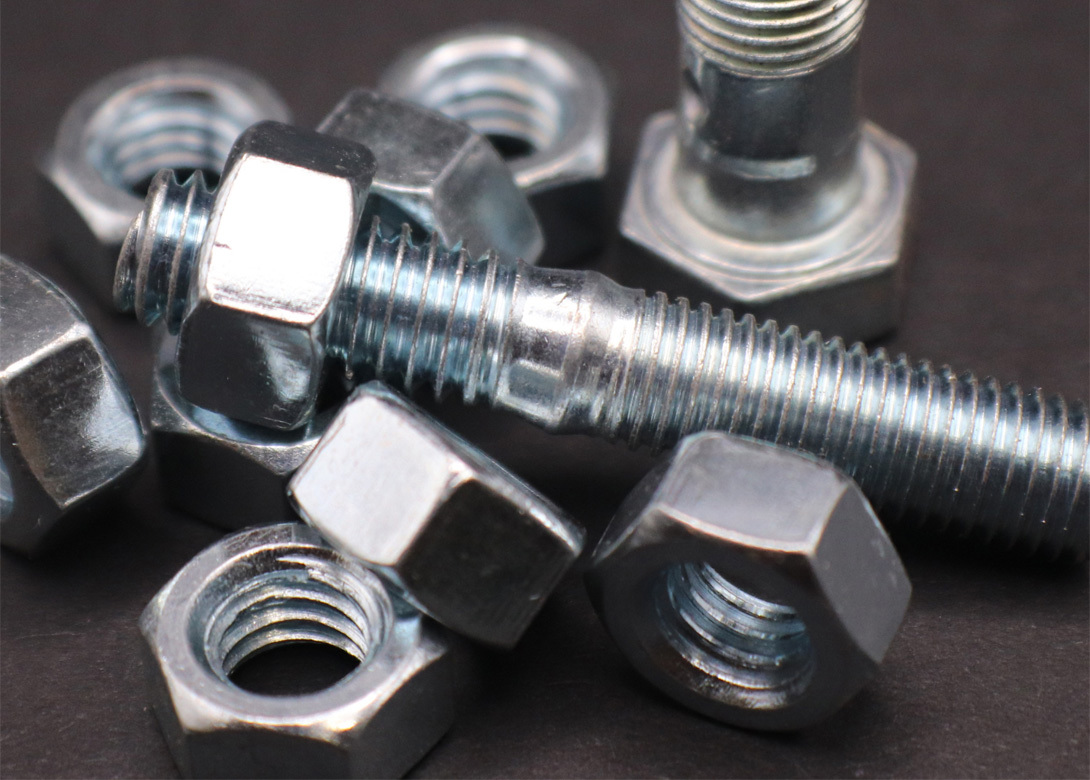

Here, Dr Bill Eccles, from Bolt Science, assesses whether a mild steel nut can be used with a high tensile bolt without compromising the component performance and whether or not the grade of a nut should be matched to the grade of the bolt.
Nut thickness standards have been drawn up on the basis that the bolt will always sustain tensile fracture before the nut will strip. If the bolt breaks on tightening, it is obvious that a replacement is required. Thread stripping, however, tends to be gradual in nature. If the thread stripping mode can occur, assemblies which are partially failed may enter into service undetected and this can have disastrous consequences. Hence, the potential of thread stripping in the internal and external threads must be avoided if a reliable design is to be achieved.
When specifying nuts and bolts, the appropriate grade of nut must always be matched to the bolt grade. The standard strength grade (or property class as it is known in the standards) for many industries is 8.8. On the head of the bolt, 8.8 should be engraved together with a mark to indicate the manufacturer. Property class of the nut matched to an 8.8 bolt is a grade 8. Like with a bolt, the nut should be marked with an 8, but a manufacturer's identification symbol will be at the manufacturer's discretion.
Higher tensile bolts, such as property class 10.9 and 12.9, have matching nuts 10 and 12 respectively. In general, nuts of a higher property class can replace nuts of lower property class as the 'weakest link' is required to be the tensile fracture of the bolt.

Becca is the latest member to join our team and is eager to get stuck into the world of fasteners. She brings an enthusiastic and fresh outlook on what we do editorially and will be leading our social media activity – including sourcing material, editing articles and posting online.





